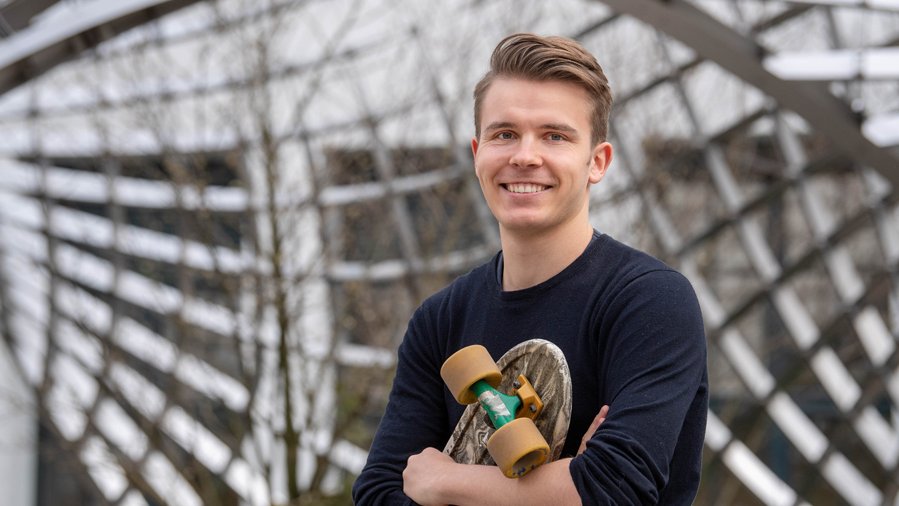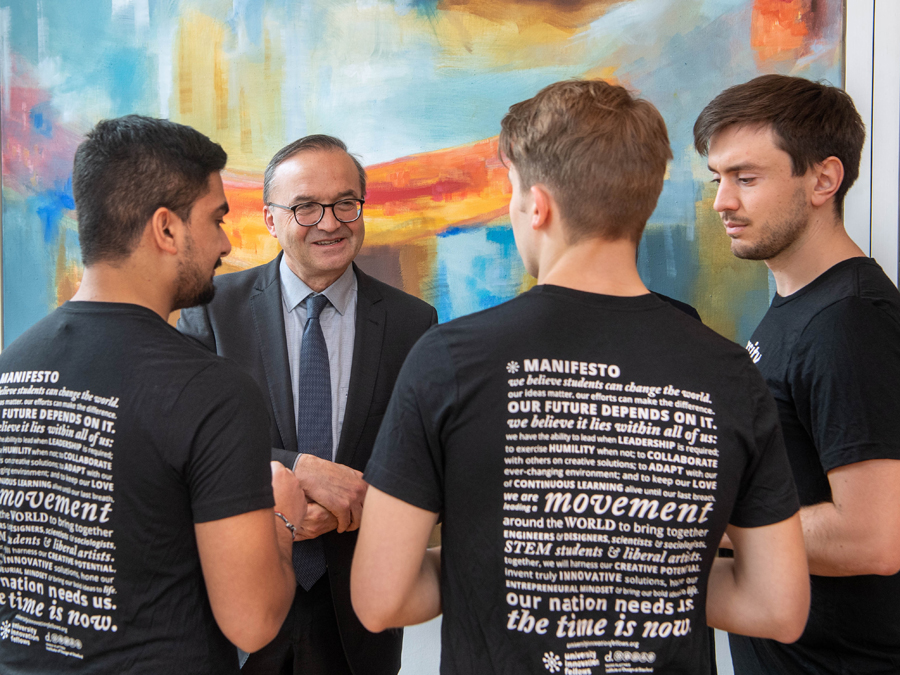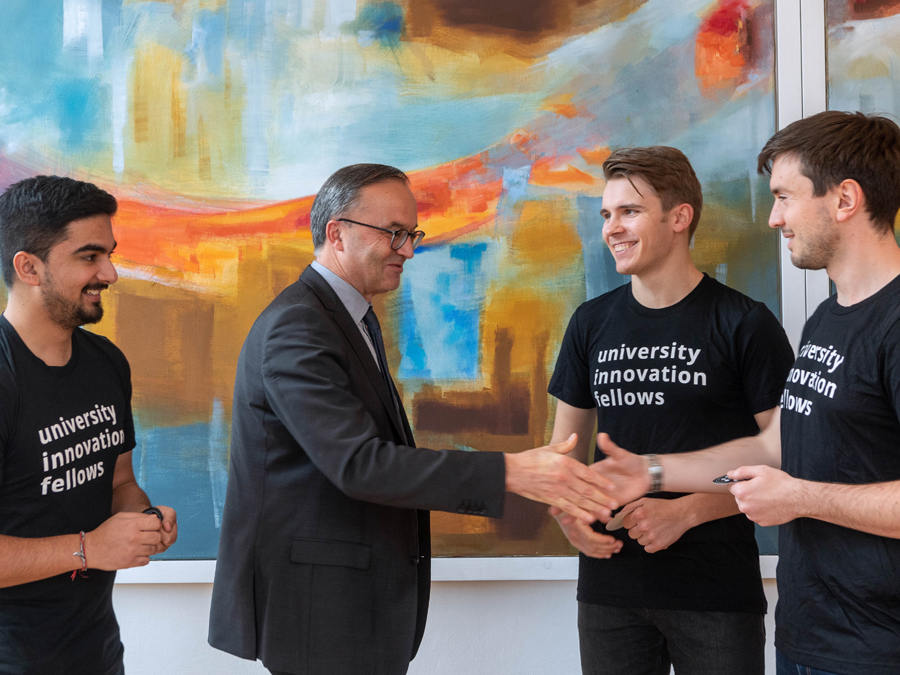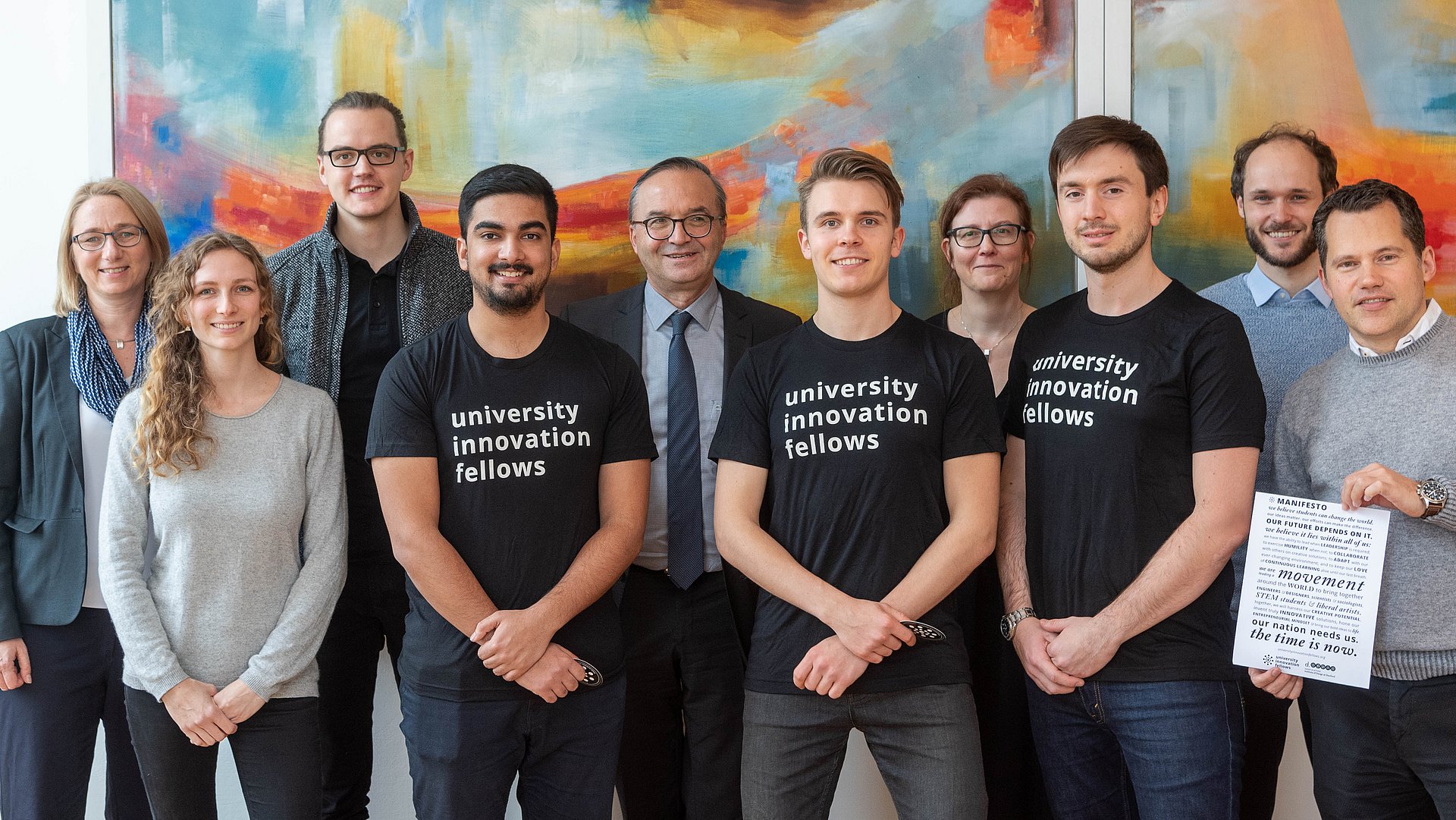Stanford's University Innovation Fellows
Vincent wants more

Vincent, you can call yourselves "University Innovation Fellows"? What does that mean?
Vincent Jeltsch: As a team, we are participating in a program at Stanford’s d.school, which promotes entrepreneurship and innovation at universities worldwide. At TUM, the five of us were selected. First, we completed a six-week online course.
What is the aim of the "University Innovation Fellows Program"?
We, the Fellows, aim to identify need for improvement at our universities – problems that affect students, things that bother them, and possible solutions to these issues.
What problems did you identify?
We conducted a lot of interviews at TUM. One of the main concerns of the freshmen is: “Will I get to know new people at university? How do I make sure I don't stay alone?" Later on in a course of studies, one of the main concerns of the students is the fear of leaving the university as a "Fachidiot", as we call it in German.
What do you mean by "Fachidiot"?
We don't learn enough practical skills. Of course, theoretical knowledge is important, but in the real world, things are often much more complex than in the lecture hall or on paper. Later in life – in professional life or if you want to start your own business – you suddenly also need practical knowledge which weren't taught during your course of study. Thus, it is essential to address practical aspects as early as possible.
Aren't there already a lot of offers focusing on practical application at TUM?
We found several existing offers at and around our university, addressing various different topics and often not very well connected with each other. We collected them and are developing a platform that lists all offers with a focus on practical skills. Our "PeerTUMPeer" platform is designed to provide students with a comprehensive overview and helps them find offers to learn the skills they looking for.
That’s what the "Innovation Fellows" project is all about.
We start by creating an overview with our platform – but we want to go beyond that. We are aiming to offer workshops and online courses by students for students. There is so much talent in the student community: students who are good at programming or have crafting skills… We want to promote these talents and skills by bringing together students who want to learn with those who are eager to teach, and that's also where the name of the platform comes from: PeerTUMPeer.
What's the next step in the program?
Recently, we held a big stakeholder meeting in the Vorhoelzer Forum with everyone involved in teaching at TUM. For half a day, several working groups addressed the topic with design thinking – with exciting results. In December, we will give Stanford a report on our progress. Then we'll find out whether we can take part in a summit at Stanford d.school in California in March.
Currently, you are studying Computer Science in your 5th semester, but you went straight into practice after school…
I founded a startup right after completing my Abitur and developed a sales platform for secondhand items. I was already into programming when I was at school, I taught myself that. We wanted to build a platform that would be easier to use than Ebay – allowing families in the Munich area, for example, to get rid of their children's stuff as quickly and easily as possible.
Why did you come to TUM?
We did that for two years, and I learned a lot in the process, but I realized that I also lacked some of the theoretical knowledge – so I decided to take up a course of study at TUM, because I knew about the innovative and entrepreneurial way of thinking. It was the right decision: if you want to create something, you will find help at TUM.
What is your wish for studying in the future?
I am interested in learning. I want to be able to build something myself. Our generation will have many problems to solve, but we aren't taught a lot in the way of technical problem solving. We need more problem-solving competency.
(Interview: Verena Meinecke)
Vincent Jeltsch (22) is a student of Computer Science in his 5th Bachelor's semester. His team at TUM also includes Tushaar Bhatt, Srdjan Dragovic, Jose Pabon Andrade, and Dennis Pötter. The "University Innovation Fellows program" of Stanford d.school sees the participants as "Agents of Change" at their respective universities. There are currently 360 "University Innovation Fellows" in 13 countries worldwide.
More information:
University Innovation Fellows
PeerTUMPeer


